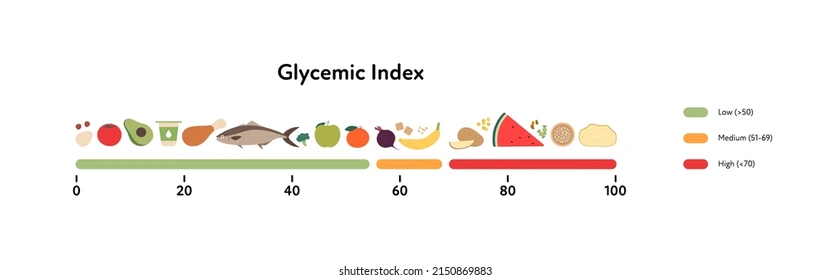10 Apple Health Benefits Backed By Science

Apples are one of the most popular fruits around the world, and for good reason. Not only do they have a delicious taste, but they also offer a range of impressive health benefits.
From reducing the risk of chronic diseases like cancer and diabetes to aiding in weight loss and improving gut health, apples are a nutritious addition to any diet.
One of the main reasons why apples are so healthy is due to their high fiber content. In addition to keeping you feeling full for longer periods of time, fiber can help regulate blood sugar levels and lower cholesterol.
Apples also contain antioxidants like quercetin and catechin, which can protect cells from damage caused by free radicals. With all these amazing benefits, it’s no wonder that apples have been associated with better overall health for centuries!
Facts About Apples
If you’re interested in learning more about apples, you’ll be glad to know that they’re a popular and widely available fruit in the UK.
There are many varieties of apples, each with their own unique flavor profile and texture. The most commonly found varieties include Braeburn, Cox’s Orange Pippin, Gala, Golden Delicious, Granny Smith, Pink Lady and Royal Gala.
Apples are generally in season from September to February but can be bought all year round. This means that they are easily accessible for consumers looking to incorporate them into their diets on a regular basis.
Apples are also relatively inexpensive compared to other fruits which makes them an affordable option for those on a budget.
Nutritional Content
The delectable fruit is a rich source of various vitamins, fiber, and antioxidants, making it a fantastic choice for those looking to boost their daily nutrient intake.
Here are some key nutritional facts about apples:
| Name | Amount | Unit |
|---|---|---|
| Water | 85.56 | g |
| Energy | 52 | kcal |
| Protein | 0.26 | g |
| Total lipid (fat) | 0.17 | g |
| Carbohydrate, by difference | 13.81 | g |
| -Fiber | 2.4 | g |
| -Sugars | 10.39 | g |
| Calcium, Ca | 6 | mg |
| Iron, Fe | 0.12 | mg |
| Magnesium, Mg | 5 | mg |
| Phosphorus, P | 11 | mg |
| Potassium, K | 107 | mg |
| Sodium, Na | 1 | mg |
| Zinc, Zn | 0.04 | mg |
| Copper, Cu | 0.027 | mg |
| Selenium, Se | 0 | µg |
| Vitamin C | 4.6 | mg |
| Thiamin | 0.017 | mg |
| Riboflavin | 0.026 | mg |
| Niacin | 0.091 | mg |
| Vitamin B-6 | 0.041 | mg |
| Folate, total | 3 | µg |
| Folate, food | 3 | µg |
| Choline | 3.4 | mg |
| Vitamin B-12 | 0 | µg |
| Vitamin A, RAE | 3 | µg |
| Retinol | 0 | µg |
| Carotene, beta | 27 | µg |
| Carotene, alpha | 0 | µg |
| Cryptoxanthin, beta | 11 | µg |
| Lycopene | 0 | µg |
| Lutein + zeaxanthin | 29 | µg |
| Vitamin E (alpha-tocopherol) | 0.18 | mg |
| Vitamin D (D2 + D3) | 0 | µg |
| Vitamin K (phylloquinone) | 2.2 | µg |
| Cholesterol | 0 | mg |
| Caffeine | 0 | mg |
| Theobromine | 0 | mg |
By incorporating apples into your diet regularly, you can improve your overall health while enjoying a tasty snack or ingredient in your favorite dishes.
Apple Health Benefits

1. Cholesterol and Blood Pressure
Apples are a great addition to any heart-healthy diet, as they’ve been shown to lower high cholesterol levels.
The soluble fiber in apples binds with bile acids in the gut, which reduces the amount of cholesterol that’s absorbed into the bloodstream. In addition to lowering cholesterol levels, apples also have benefits for blood pressure.
Studies have shown that consuming apples regularly can lead to a reduction in both systolic and diastolic blood pressure. [1]
This may be due to their high content of polyphenols, which have been linked to improved endothelial function and reduced inflammation in the body.
To reap the benefits of apples for cholesterol and blood pressure, it’s important to consume them whole and unpeeled. This is because much of the beneficial fiber and polyphenols are found in or just beneath the skin.
2. Digestive Health
Improving digestive health can be achieved by incorporating fiber-rich foods into your diet, like adding more fruits and vegetables to meals.
Apples are an excellent source of fiber that can help promote healthy digestion. The soluble fiber found in apples can help prevent constipation by binding with water in the intestines and forming a gel-like substance that softens stools.
In addition to promoting regularity, apples also contain pectin, a type of prebiotic fiber that feeds the beneficial bacteria in your gut.
These bacteria play a crucial role in maintaining digestive health by producing short-chain fatty acids (SCFAs) that nourish the cells lining your colon.
A healthy gut microbiome not only promotes digestion but has also been linked to improved immune function, reduced inflammation, and even better mental health.
So next time you’re looking for a snack or side dish that promotes healthy digestion, reach for an apple!
3. Immune System Support
Incorporating foods rich in nutrients and antioxidants can help strengthen your immune system, allowing it to better fight off infections and illnesses.
Apples are a great addition to any diet for this reason. They contain vitamin C, which is essential for immune function and can help reduce the severity and duration of respiratory infections.
Additionally, apples are high in polyphenols, which have been shown to have anti-inflammatory effects and may enhance immune function.
Here are four ways that incorporating apples into your diet can support your immune system:
- Vitamin C: One medium apple provides about 14% of the daily recommended intake of vitamin C, an important nutrient for immune health.
- Anti-inflammatory effects: The polyphenols found in apples have been shown to reduce inflammation throughout the body, including in the gut where much of our immune system resides.
- Enhanced immunity: Certain compounds found in apple peels have been shown to stimulate white blood cells, which play a key role in fighting off infection.
- Reduced risk of chronic disease: By reducing inflammation and promoting overall health, eating apples regularly may also reduce the risk of chronic diseases like heart disease and cancer that can compromise our immune system.
4. Diabetes-Friendly
For those looking for a snack that won’t spike their blood sugar levels, apples are a great option.
Apples have a low glycemic index, meaning they release sugars slowly into the bloodstream and do not cause rapid spikes in blood sugar levels.

This is especially beneficial for people with diabetes who need to regulate their blood sugar levels.
In addition to being low on the glycemic index, apples contain soluble fiber which helps slow down the digestion of carbohydrates and further prevents spikes in blood sugar levels.
A medium-sized apple contains about 4 grams of fiber, with most of it being found in the skin.
A study found that women who ate at least one serving of apples per day had a 28% lower risk of developing type 2 diabetes compared to those who did not eat any apples. [2]
This is due to the polyphenols found in apples which have been shown to improve insulin sensitivity and reduce inflammation.
5. Antioxidants and Cancer Prevention
Did you know that eating more foods rich in antioxidants, like those found in apples, may help reduce your risk of certain cancers?
Antioxidants protect cells from damage caused by free radicals, which can contribute to the development of cancer.
Apples contain a variety of antioxidants, such as flavonoids and polyphenols, that have been linked to beneficial effects against certain types of cancers.
Here are three ways that apples’ antioxidant content may offer protection against cancer:
- Polyphenols in apples have been shown to inhibit the growth and proliferation of cancerous cells. [3]
- The fiber in apples helps promote healthy digestion and elimination, which can reduce exposure to toxins that may contribute to cancer development.
- Some studies suggest that consuming whole fruits with high levels of antioxidants, like apples, may be more effective at reducing cancer risk than taking antioxidant supplements.
While further research is needed to fully understand the impact of apple consumption on cancer prevention, incorporating this nutritious fruit into your diet is a simple way to boost your overall health and potentially lower your risk for chronic diseases.
6. Weight Loss

If you’re looking to shed a few pounds, snacking on apples can be a tasty and filling choice. Apples are low in calories and high in fiber, which means they can help keep you feeling full for longer periods of time.
One medium apple contains only 104 calories and 5 grams of fiber, making it an excellent snack option for weight loss.
In addition to being low in calories and high in fiber, apples contain polyphenols that may have anti-obesity effects. These compounds have been shown to reduce body weight gain by altering fat metabolism and improving insulin sensitivity. [4]
You can also incorporate apples into your meals by adding them to salads or oatmeal or using them as a natural sweetener in baked goods like muffins or pies.
7. Brain Health
Moving on to brain health, apples have been found to contain a powerful antioxidant called quercetin that may protect the brain from damage caused by oxidative stress.
Studies suggest that this antioxidant effect may help prevent injuries that can result in degenerative brain diseases such as Alzheimer’s disease or dementia. [5]
A study looked at how substances found in apples affect the adult mouse brain. They found that a compound called quercetin, found in apple peel, helped create new brain cells at low levels but stopped it at high levels.
When quercetin was given through injections, it helped brain cells survive and develop into neurons without affecting their creation.
They also found another substance in apple flesh, called 3,5-dihydroxybenzoic acid, which also helped create new brain cells by supporting their growth and development.
8. Gut Health
Get your gut in tip-top shape by incorporating apples into your diet – they’re a great source of pectin, a type of fiber that acts as a prebiotic and can improve gut health.
Pectin is resistant to digestion and ferments in the colon, producing short-chain fatty acids that nourish the beneficial bacteria in the gut.
By promoting the growth of good bacteria, pectin can help balance the microbiome and reduce inflammation.
In addition to pectin, apples are rich in polyphenols, which have been shown to modulate gut microbiota and prevent dysbiosis.
9. Heart Health

Take care of your heart by incorporating apples into your diet, as they contain soluble fiber and polyphenols that can lower blood pressure and reduce the risk of atherosclerosis.
Soluble fiber helps reduce cholesterol levels by binding to bile acids in the gut, preventing them from being reabsorbed into the bloodstream.
Studies have shown that eating apples regularly can improve heart health. In a study conducted on postmenopausal women, those who ate dried apple every day for a year had lower levels of LDL (‘bad’) cholesterol and higher levels of HDL (‘good’) cholesterol compared to those who didn’t eat apples.
In another study, researchers conducted a randomized, controlled trial with mildly hypercholesterolemic volunteers to investigate the effects of daily apple consumption on cardiovascular health.
Consuming two polyphenol-rich apples per day resulted in decreased total and LDL cholesterol, lower triacylglycerol levels, reduced intercellular cell adhesion molecule-1, and improved microvascular vasodilation compared to a control beverage.
Apples had no significant effect on blood pressure or other cardiovascular markers.
10. Contains Probiotics
Opting for organic apples may provide a more diverse and distinct bacteria colony, potentially offering gut health advantages.
A study found that freshly harvested organic apples had a greater variety of bacteria than conventionally grown store-bought apples. This diversity could mean a healthier gut microbiome, which has been linked to improved immune function, digestion, and mental health.
The beneficial bacteria found in organic apples include Lactobacillus and Bifidobacterium strains, which are commonly used in probiotic supplements. These strains help promote the growth of healthy gut bacteria and can improve overall digestive health.
While choosing organic apples may come at a higher cost than conventional ones, it could be worth it for the potential health benefits.
By supporting a diverse and healthy microbiome through diet choices like eating organic produce, individuals can take an active role in improving their overall well-being.
Frequently Asked Questions
Bottom Line
In conclusion, apples aren’t just delicious but also a nutritious addition to any diet. They provide numerous health benefits due to their high fiber and antioxidant content.
Some of these benefits include aiding in weight loss, improving gut health, and reducing the risk of chronic diseases like cancer and diabetes.
As the saying goes, “an apple a day keeps the doctor away,”and it’s easy to see why. Incorporating apples into one’s daily diet can lead to improved cholesterol levels and blood pressure, better digestive health, and strengthened immune system support.
Organic apples can even help fight harmful bacteria, leading to cancer prevention.
Overall, adding apples to one’s daily routine is a simple way to improve overall health and well-being. So next time you reach for a snack or side dish option, consider grabbing an apple instead of less nutritious options.
As John Muir once said, “The clearest way into the universe is through a forest wilderness.”Similarly, incorporating more apples into your diet may be the clearest path towards optimal health.
The Lost Book of Herbal Remedies
You’ll find 800+ beneficial plants and remedies in “The Lost Book of Herbal Remedies“.
It includes recipes of tinctures, teas, decoctions, essential oils, syrups, salves, poultices, infusions and many other natural remedies that our grandparents used for centuries.
What’s also special about this book is that it has between 2 and 4 high definition, color pictures for each plant and detailed identification guidelines to make sure you’ve got the right plant.
Read Next

